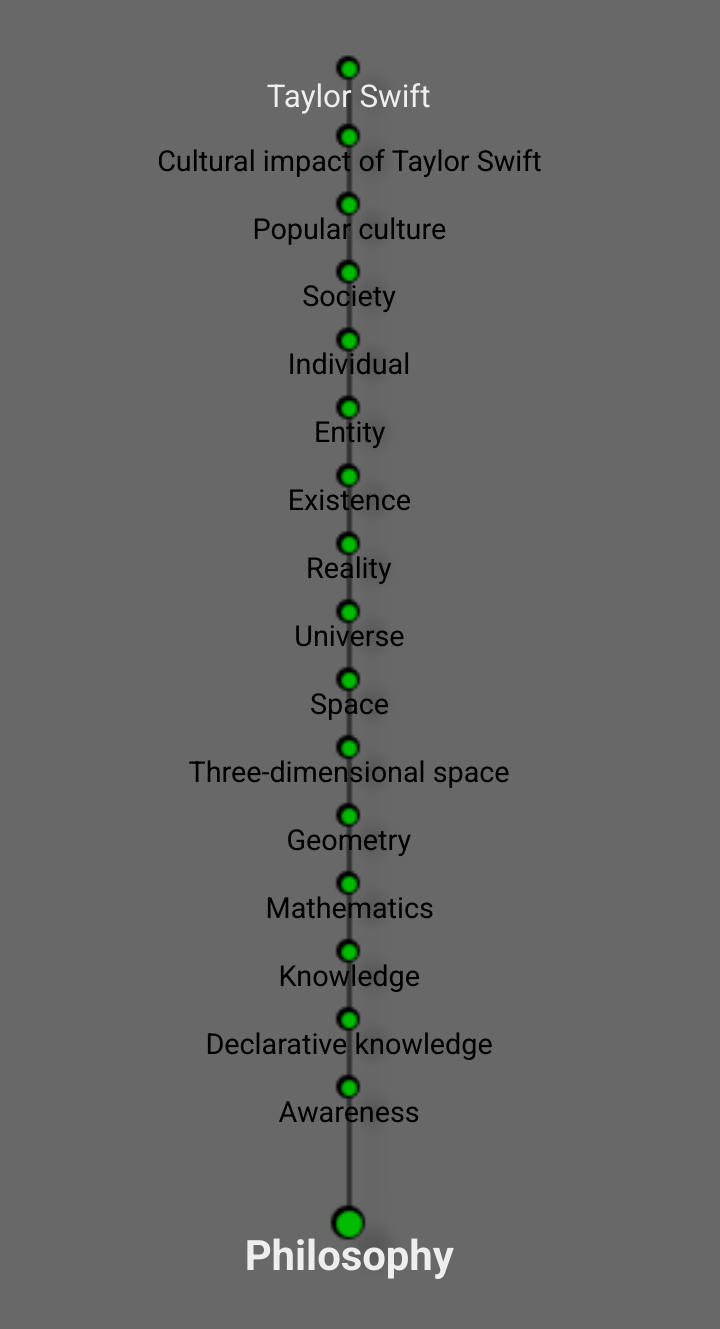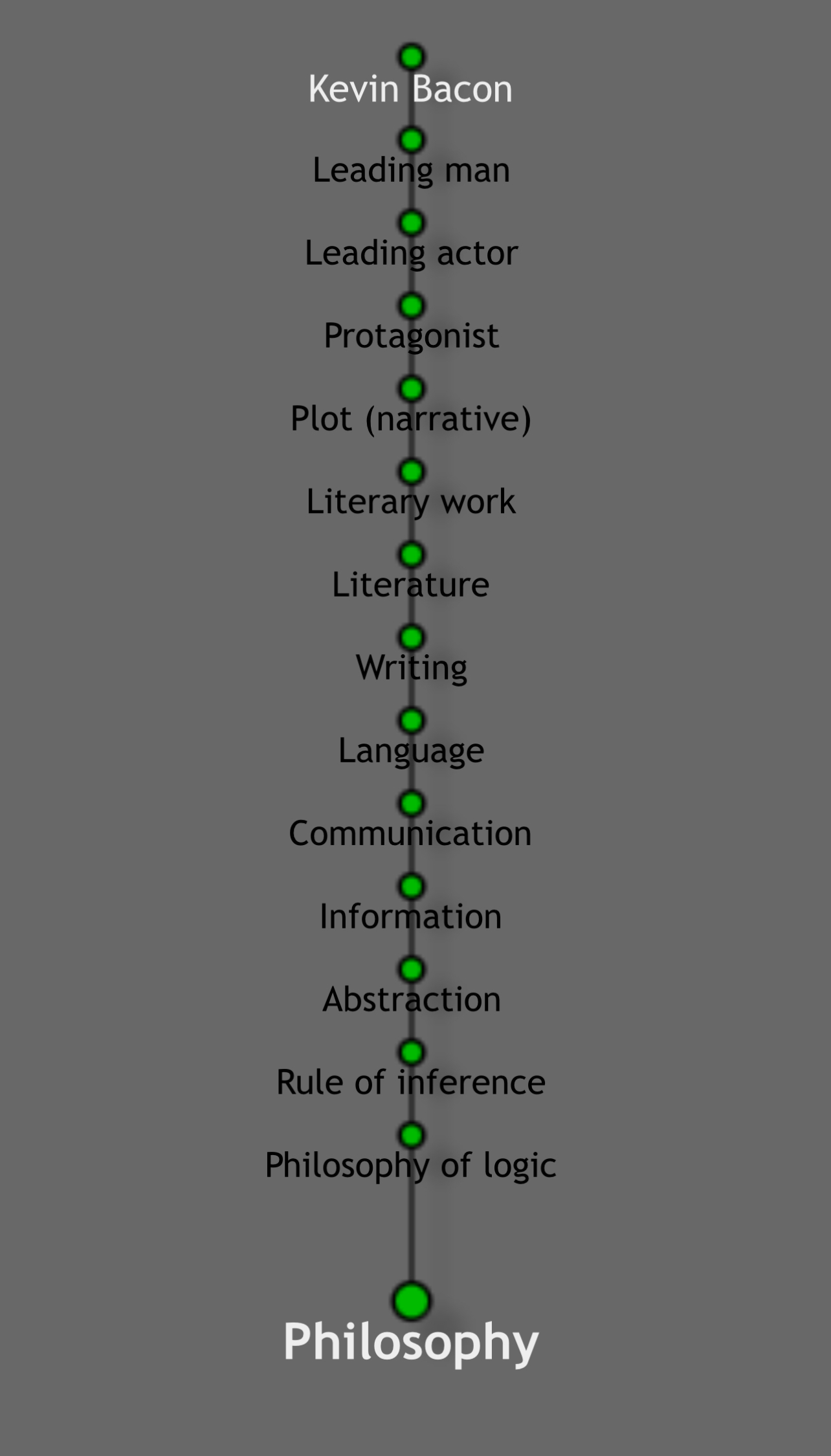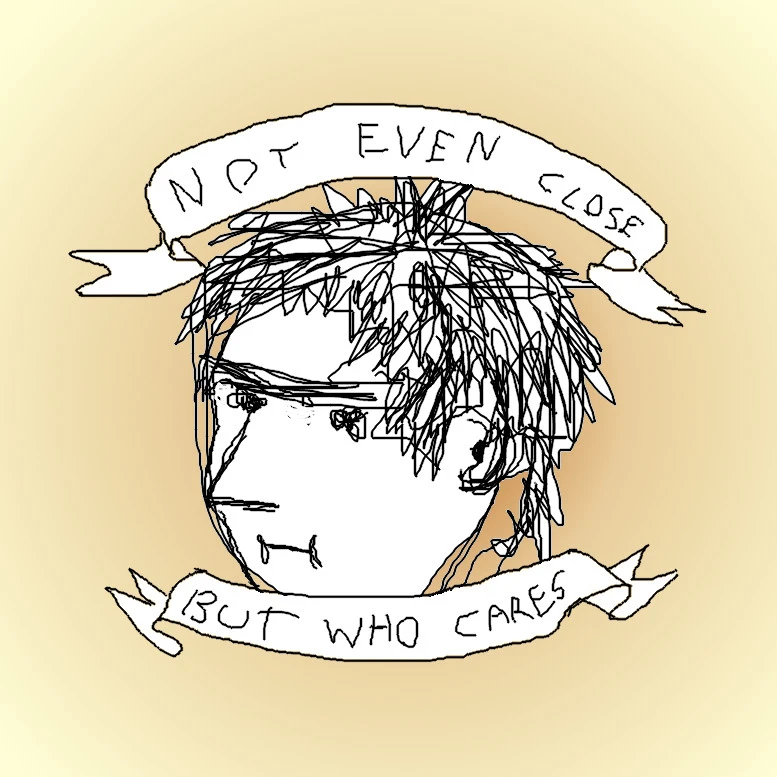Here’s the chain for lemmy

cool. what software did you use to make this plot?
Philosophy
https://www.xefer.com/Wikipedia it’s from the Wikipedia page you linked
Almost certainly because the most common opening sentence for an article follows the “[subject] is a member of [broader group]” structure and the more generalized you get, the more you get into entire areas of study, which are eventually classified as a kind of philosophy, which is just fancy-speak for “high-skill thinking.”
There have been some theories on this phenomenon, with the most prevalent being the tendency for Wikipedia pages to move up a “classification chain”. According to this theory, the Wikipedia Manual of Style guidelines on how to write the lead section of an article recommend that articles begin by defining the topic of the article. A consequence of this style is that the first sentence of an article is almost always a definitional statement, a direct answer to the question “what is [the subject]?”
Wrote a paper on this for a network theory class back in college and came to pretty much the same conclusion. Pages tend to lead to “funnels” of similar general topics, such as Earth, science, etc. and they all make their way upward into philosophy, which is the study of thinking, since thinking is at its core how we perceive the world.
Interestingly there’s two distances from philosophy that pages tend to hover around, the closer one of which is more full of technology and science stuff while the farther one is mostly places. It’s a pretty interesting deep dive


Bro WTF does the Wikipedia article on “Existence” say? Just “Yes”?
A long article with 9 dropdowns… Existence is, in fact, very hard to define.
It’s better than nothing
FYI: that page also gets to philosophy.
Honestly, it would be even more fun if it didn’t
Fun fact: Since “Philosophy” is part of a loop itself, you could say the same thing about any of the 11 element of that loop, including “Three-dimensional space”
And geometry as well as the universe. That was a wild trip, I tried 5 different things.
I thought the first link in philosophy was philosophy itself.
Edit: I brainfarted while writing. What I meant is “I thought it would be even more interesting if the first link in philosophy was philosophy itself”.
Do you mean this part? I don’t think that’s part of the article. From my understanding, the parentheses isn’t counted either.

Actually, no, but I meant something very different from what I wrote hehe I will edit my comment, thanks!
I see. I think wikipedia either forbids links to itself or at least it is against every convention
Sounds reasonable
And I think a word is never twice linked but only the first time it appears. So if “clicking” will occur a second time, it won’t be clickable
What the hell this is cool but kinda creepy.
I mean, it is not that creepy. Philosophy underlies science and almost everything is studied in science. I guess the same is the case for other concepts that are just as broad and fundamental. Or maybe it is possible to go from almost any page to almost any other page. I guess that would make sense too.
Yeah but remember you have to click the first link (except links between parentheses, because they are often translations).
I think it’s because, as someone earlier in the thread pointed out. Most article begin by stating what the topic is a subset of. Since everything is a result of humans categorizing and thinking about the world, that inevitably leads back to philosophy.
Yes, I agree. However, that makes it even more interesting when the categorization doesn’t lead back to philosophy, but instead goes in a loop.
I missed that. That might make a difference.
Don’t let yourself be LIED to. BIG PHILOSOPHY is behind this, changing Wikipedia’s RULES so that they can CONTROL YOU through YOUR THOUGHTS. Don’t let big philosophy win, STOP THINKING.
reject thinking, revert to amphibian
okay wait this is actually real what
doesnt work with Bradley Cooper
Looks like BAFTA doesn’t either: https://en.m.wikipedia.org/wiki/British_Academy_of_Film_and_Television_Arts
It does if you break out of the loop after the third article or so.
Just tried it, worked for me.
Either you get to Philosophy, or you get to Bradley Cooper
Nice follow up game after the old “random article to Hitler“
I thought Jesus was the typical goal?

Something something small world networks
something something dense spanning trees
it looks like you have to skip the part in italics at the top of articles (disambiguation, “other uses”, etc…) too for that to be effective
That is generally assumed to be the case, for the Wikipedia game as well
Well then, another project to do, DDOS wikipedia using a crawler that checks the average and maximum amount of nodes to get to philosophy
You can also just download the article dataset :)
Okay, DDoS oneself, then
I did Rumpke Sanitary Landfill.
- Landfill
- Waste
- By-product
- Manufacturing
- Production
- Material
- Matter
- Classical physics
- Physics
- Natural science
- Branches of science
- Science
- Scientific method
- Empirical evidence
- Proposition
- Philosophy of language
- Analytic philosophy
- Philosophy
I’ll be damned.
As someone whose grandma lived in Dunlap, I can smell this comment.
















